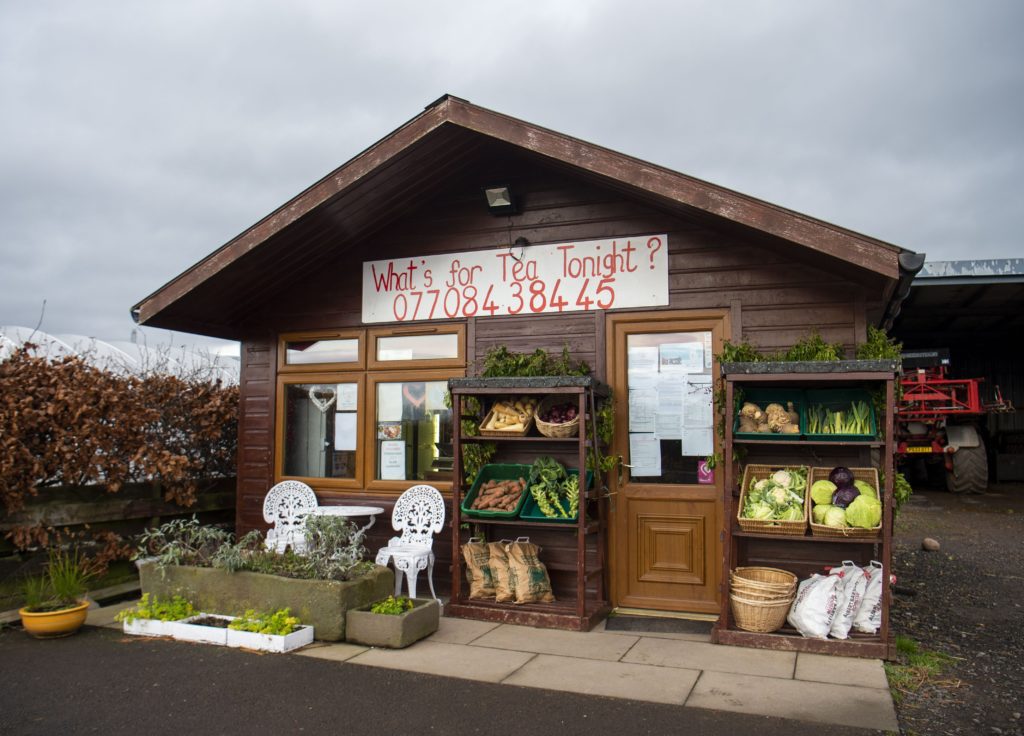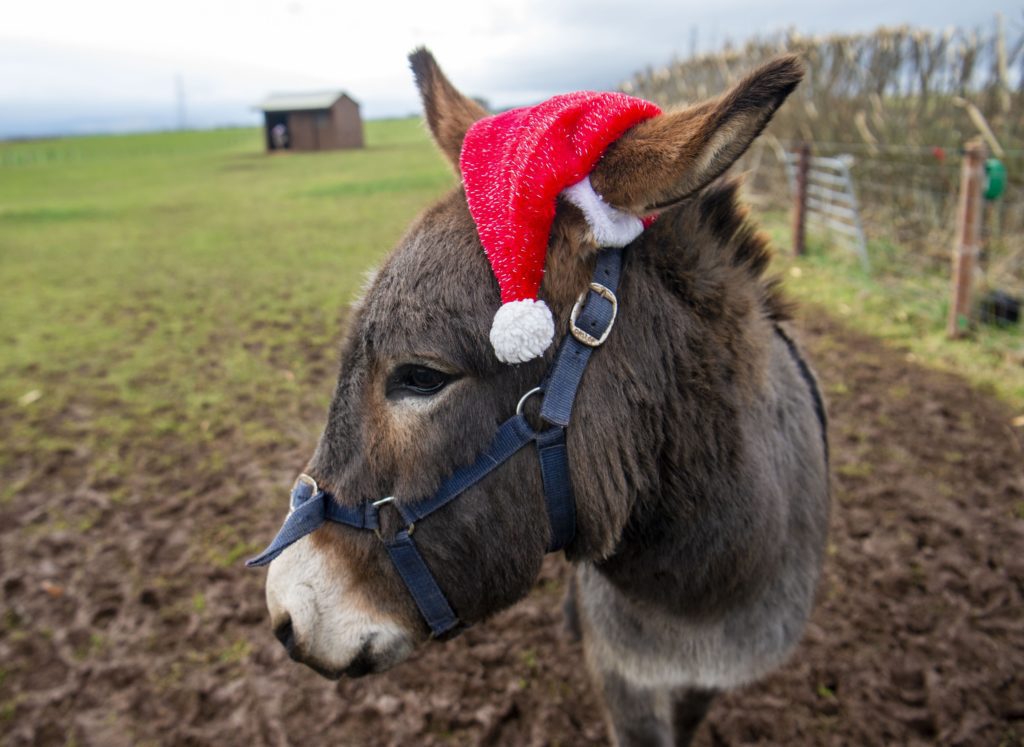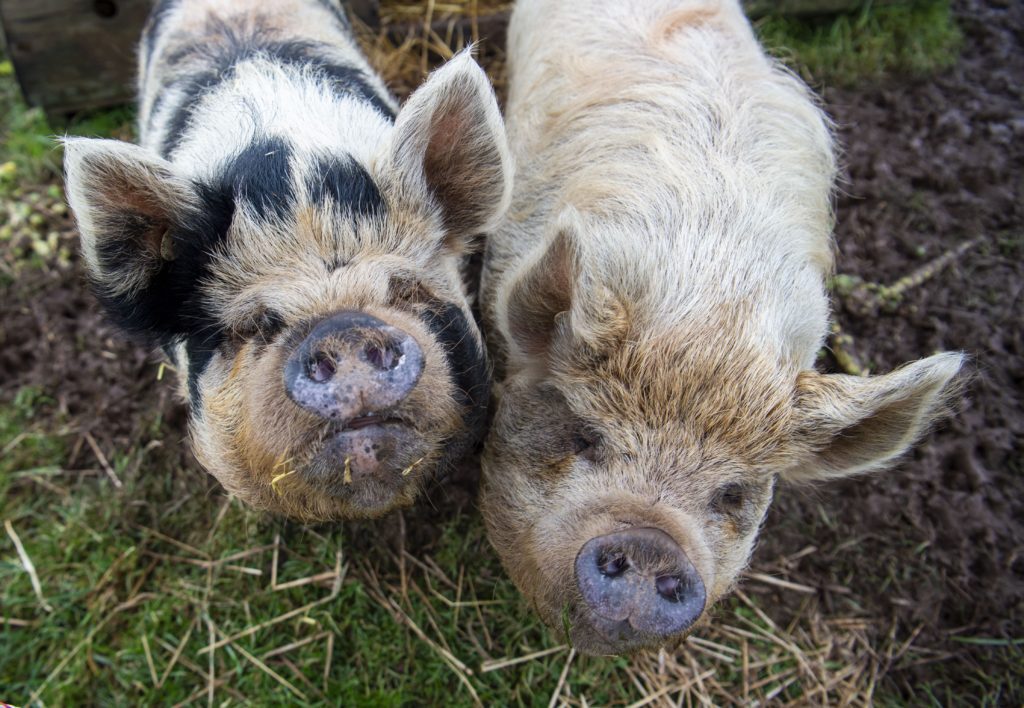As it is the season of goodwill, Cat Thomson chats to Marie Thomson who runs What's for tea tonight? farm shop in Laurencekirk.

She explains that it all began when her father-in-law started selling carrots from a shed, and grew when people started to ask to buy produce from her garden next door – “they started leaving notes asking when I was picking my peas or the berries or lifting my tatties. It just took off from there.”
Her small garden plot has snowballed into two acres for both summer and winter crops, with two polytunnels, for growing fruit and tender vegetables which she sells in her farm shop. She has also developed Farming On The Field lessons.
She says members of the public or groups can access these farm sessions to learn more about the produce, adding “they are available for anyone of any age with or without additional needs”.
She grew up on her family’s mixed arable farm, and says: “I just loved it, I just wanted to farm. We relied on the local families coming to pick our berries and then coming back and picking the tatties, so you grew in amongst these families – the whole community was involved.”
But her father discouraged her away from farming, so she studied physiotherapy at Queen’s College in Glasgow (now part of Glasgow Caledonian University).
After 25 years, she stepped away from her career to spend time with her father who had been diagnosed with terminal cancer, and says now: “I didn’t realise at the the time but the wee farmer in me was just waiting to get out.”
Farming In The Field came about initially because her young relatives wanted to be involved, then some customers asked about sessions and they all said: “Where else can we do this?”
She says: “It is very hands-on. They are cutting out raspberry canes, or they are picking raspberries, tying up canes, or chopping off the tops of the brussels sprouts that the caterpillars have eaten, or helping me do my Christmas harvest. They really are part of the whole process.”
Caronhill Special School in Stonehaven asked if they could make an informal visit. This became a more regular trip, and in 2019 they asked if the farm would like to join a recognised government scheme, to help the youngsters develop work skills and learn how to care for crops and animals. Marie now runs a 90-minute session for them every week
Marie’s secret to connecting to all types of people is simple: “Just listen to what they are saying, show you value it. That way you get so much mileage from that it is unbelievable.”
During the lessons, the pupils learn to tend seasonal fruit and vegetables and how to look after animals – “they are all helping me to train our two donkeys”.

The farm has two, Kieran who is the boss and a bit of a jackass, while “Johnny has a way with the ladies, and gets spoilt by them”.
They bought two young donkeys as part of the animal care programme with a possible goal that they might be able to be trained to drive a cart for the public or possibly even carry an assisted needs wheelchair. They are taking things very slowly and working with a donkey expert to train them with the help of the children.
Marie says: “We can’t start the process of breaking them into the cart until they are older, around four years old, and strong enough. [But] I didn’t want them just to be in the field being petted, they needed a job to do.”
They are a valuable members of the What’s For Tea education team and provide eye-level animal contact for wheelchair users. It is a long-term commitment as they can live for 30 years.
She has learned that the more time you can spend with them the more they will bond with you, saying: “Kieran now brays at the gate whenever he sees us coming or he hears kids at the shop.”
Now during sessions the children can safely lead them on the rope from one side of a fence under Marie’s supervision.
She reveals one humbling moment that brought a tear to her eye: “A wheelchair-user pupil, on their first visit they fed the donkey with a bucket over the fence; the second visit they held the donkey on the rope and the third visit that pupil was being pushed along but leading the donkey. He was so ecstatic – that is what makes it.”
What’s a donkey’s favourite fruit? It’s not a riddle from inside a Christmas cracker, but as donkeys come from hot countries near the equator, Marie says, “They really like a banana”.
They are also fans of pears, apple and carrots – but not neeps, she said. “They are spoiled everyday, just like it is Christmas.”
Marie describes what her own childhood Christmases were like: “We were on a hill farm so we had snow most years, and we sometimes had no electricity, so we were great card players because you could play that when the power was off.”
Father Christmas would be left a dram and a piece of shortcake, while Rudolph would have a carrot to munch.
She adds: “You got one parcel, and it was usually a game. That was the one day off a year where you actually had a chance to relax and chill. You cleared the day for your family and extended family to come round.”
At What’s For Tea Tonight? Farm Shop during the holidays, they try to organise an educational workshop or activity.
This year they have a festive scavenger hunt called Mr and Mrs Clause & Reekie the Reindeer on 24 December, as well as another called Izzie the Snow-woman has lost her clothes on 29-31 December.
They have also run workshops throughout the year including dog training, caring for your pet lamb and caring for your pony, with guest speakers.

The farm also has two kunekune pet pigs who have a very important job to do: eating the non-sellable vegetables “and acting as our biological waste vegetable management and soil improvers”.
Marie thought pigs would be ideal for this job, as well as helping with animal care sessions. The children named the pigs Pinky and Dotty four years ago to raise funds for Carronhill School.
The porky step-sisters were selected for their good natures, but Marie admits “they are a bit overweight”.
Although the farm is not organic, the produce in the shop is as fresh as it can be: “Fruit and vegetables are fresh, and if you order it will get picked that morning for you, or you can do it yourself if you are coming to harvest your own Christmas veg on the 24th.”
They also work closely with other small local family farms to stock farming produce in the shop throughout the year, buying direct from farmers where possible.
She said their customers are “such a rainbow of people, we have all walks of life coming in, certain folk that come to us for what we do with Carronhill School, grandparents because I employ their grandchildren, or because they have a firm belief in what we do, or just someone placing an online order for pure convenience but we need them all.”
Marie is a really lovely northern star, whose compassion is shining bright for all to see.